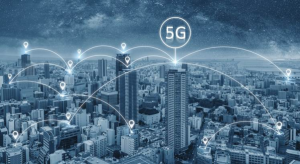5G – Mobile or Fixed ?

The fifth generation of mobile networks (5G) is ramping up at an increasing rate, with more live locations being added every few weeks all around the globe by all the major mobile network providers. It won’t be long before we will be asking ourselves if it is now time to make our move to this advanced technology. The dramatic increase in speed alone will be a major motivator, but there are other benefits, such as reduced power consumption and more reliable and responsive internet connections. What is not so well known just yet is that 5G can be implemented in two different ways – Mobile 5G or Fixed Wireless Access (FWA) 5G, and here are some of the differences and why you might choose one over the other.
Mobile 5G: This is the simplest implementation and requires only that you invest in a 5G mobile device (Smartphone) and a usage plan with a 5G mobile network provider. The process is familiar, as it is the same as starting up with a new Smartphone. What may be different is the cost, and costs could be impacted by the amount of data you will want when the speed is so fast. Given all that speed, network providers will likely offer large or unlimited data plans. The increased bandwidth and speed of 5G is the main reason it is being developed, and consumers are already lining up to get on board for these benefits, and for many consumers, cost is not a barrier. Reliability of Mobile 5G will still depend on cell network coverage, the same as all other mobile networks, so choosing a mobile 5G network provider should include an awareness and analysis of the provider’s 5G network coverage.
Fixed Wireless Access (FWA) 5G: This implementation of 5G is intended for a fixed location, typically your home (or business). It requires some new hardware that will transform your home Wi-Fi network into a 5G network to be used by all Wi-Fi connected devices, which would typically and easily include your phone. The required new hardware includes a modem and antenna to access the closest 5G cell tower and a 5G router. The key to performance for an FWA setup is having a strong clear signal to your fixed location (home) from the 5G cell tower. Fixed 5G may not be offered as prolifically as Mobile 5G, but it does have benefits that providers and consumers should consider carefully. Of course, when you take your phone away from your fixed 5G network, it no longer has 5G access or capabilities.
The Hybrid Implementation: We may not have to definitively choose one or the other of the above 5G implementations if we use some existing technology to get both. Most Smartphones have a feature to set up a mobile Wi-Fi Hotspot, so you could acquire a 5G phone, set it up on a 5G mobile network plan, and then use that phone in your home as your Wi-Fi Hotspot. It would work ok, but performance depends on there being a good clear cell signal in your home. Whenever the phone or Hotspot is turned off, or the phone goes travelling outside the home, you are left with no Wi-Fi access in your home. When the phone returns home, the Wi-Fi Hotspot needs to be turned on again, and all home devices have to reconnect to the Hotspot. This has some inconvenience factors, but may be the right choice for some.
5G implementations are ramping up across the globe and we can all check with our local mobile network providers to see when they are going live with 5G, and whether they will be offering both Mobile and Fixed 5G implementations. Things are looking to get a lot faster … SOON !!
TREND DISRUPTORS is monitoring these developments, and identifies investment opportunities that will lead to success for the well informed investor.
Stay tuned …
